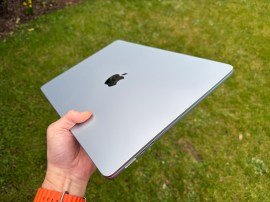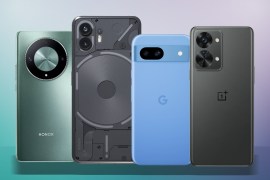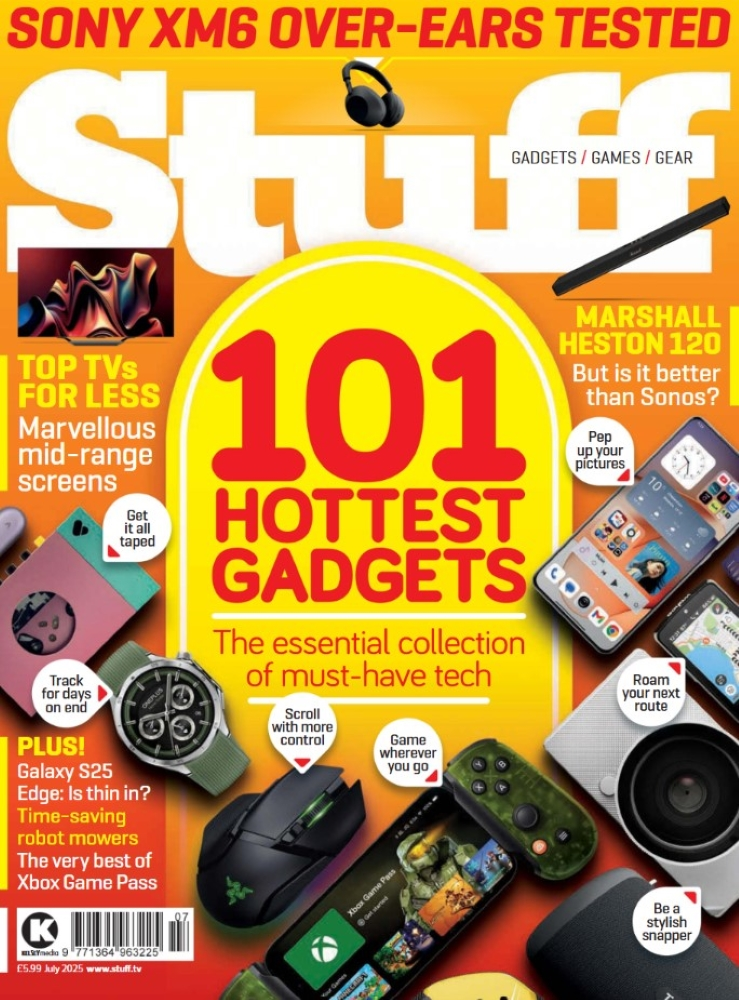Samsung Galaxy Ring review: smart rings enter the mainstream
If you track it then you should put a ring on it

Stuff Verdict
Not the first smart ring, but this debut effort brings a wearable niche to a much wider audience. The Samsung Galaxy Ring looks the part and doesn’t skimp on wellness tracking.
Pros
- As thin and light as smart rings get
- Samsung Health app is feature-rich and doesn’t need a subscription
- Consistent week-long battery life
Cons
- Limited feature set doesn’t quite justify high price
- Android-only, and works best with other Samsung hardware
- Titanium Black version doesn’t look especially high-end
Introduction
With Samsung’s wrist-worn wearables regularly topping best smartwatch lists, the firm decided the time was right to target your fingers as well. The Samsung Galaxy Ring is aimed at health conscious gadget fans who don’t like sleeping with a smartwatch on their wrist, or who want to go weeks between recharges rather than days. It saw six months of build-up before launch, yet was still the first smart ring from a big brand.
Most of the competition has so far come from much smaller startups, including Oura, Ultrahuman and Amazfit. For now it seems the likes of Garmin, Google and Apple are happy to watch from the sidelines. Whether the $399/£399 Galaxy Ring succeeds or not is going to have a huge impact on the wearable world. Having worn one for the last few weeks, I’ve found plenty to like about how it tracks wellness – and a few areas that I think fall short.
How we test wearables
Every smartwatch and fitness tracker reviewed on Stuff is worn 24/7 throughout the testing process. We use our own years of experience to judge general performance, battery life, display, and health monitoring. Manufacturers have no visibility on reviews before they appear online, and we never accept payment to feature products.
Find out more about how we test and rate products.
Design & build: jewel in the crown
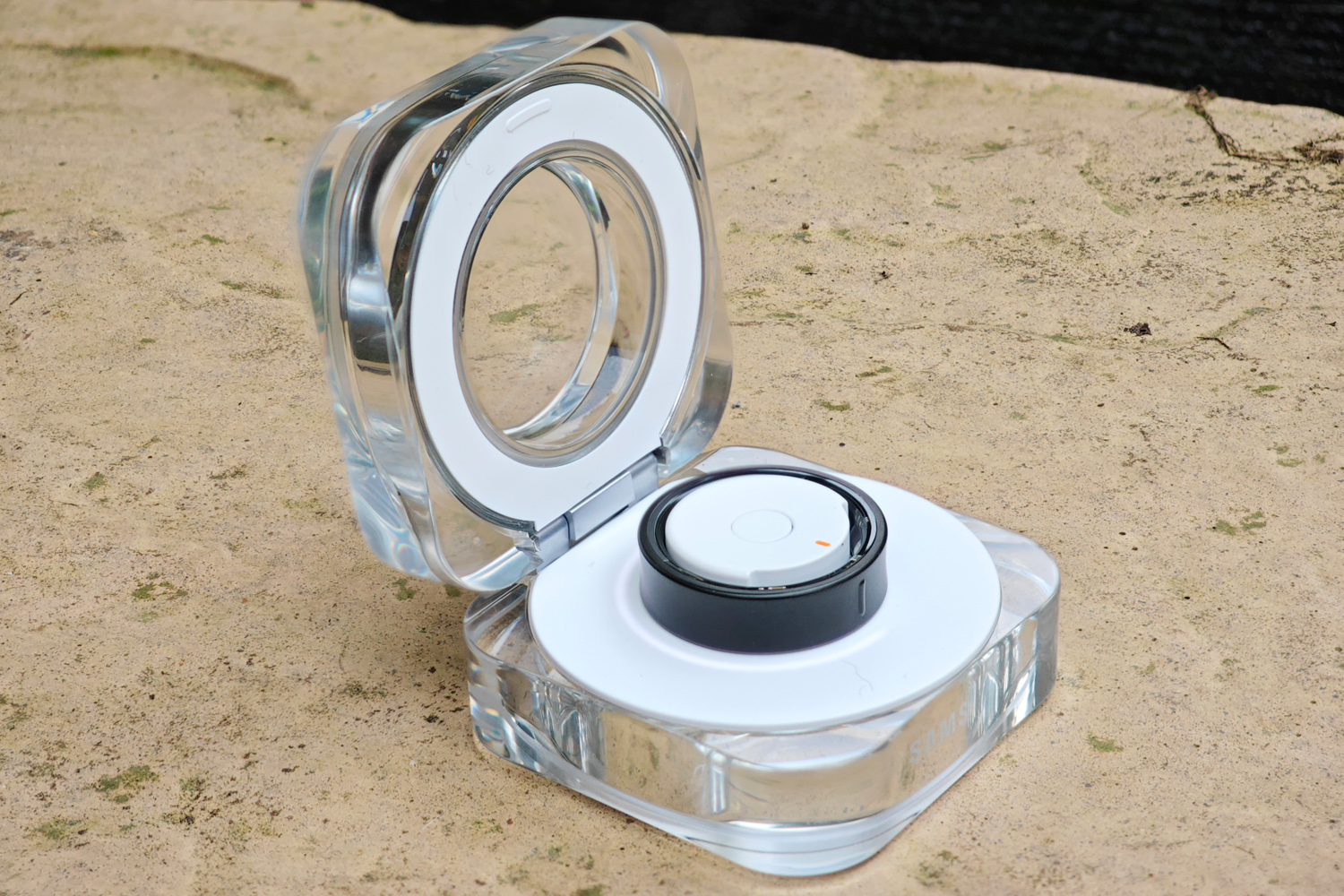
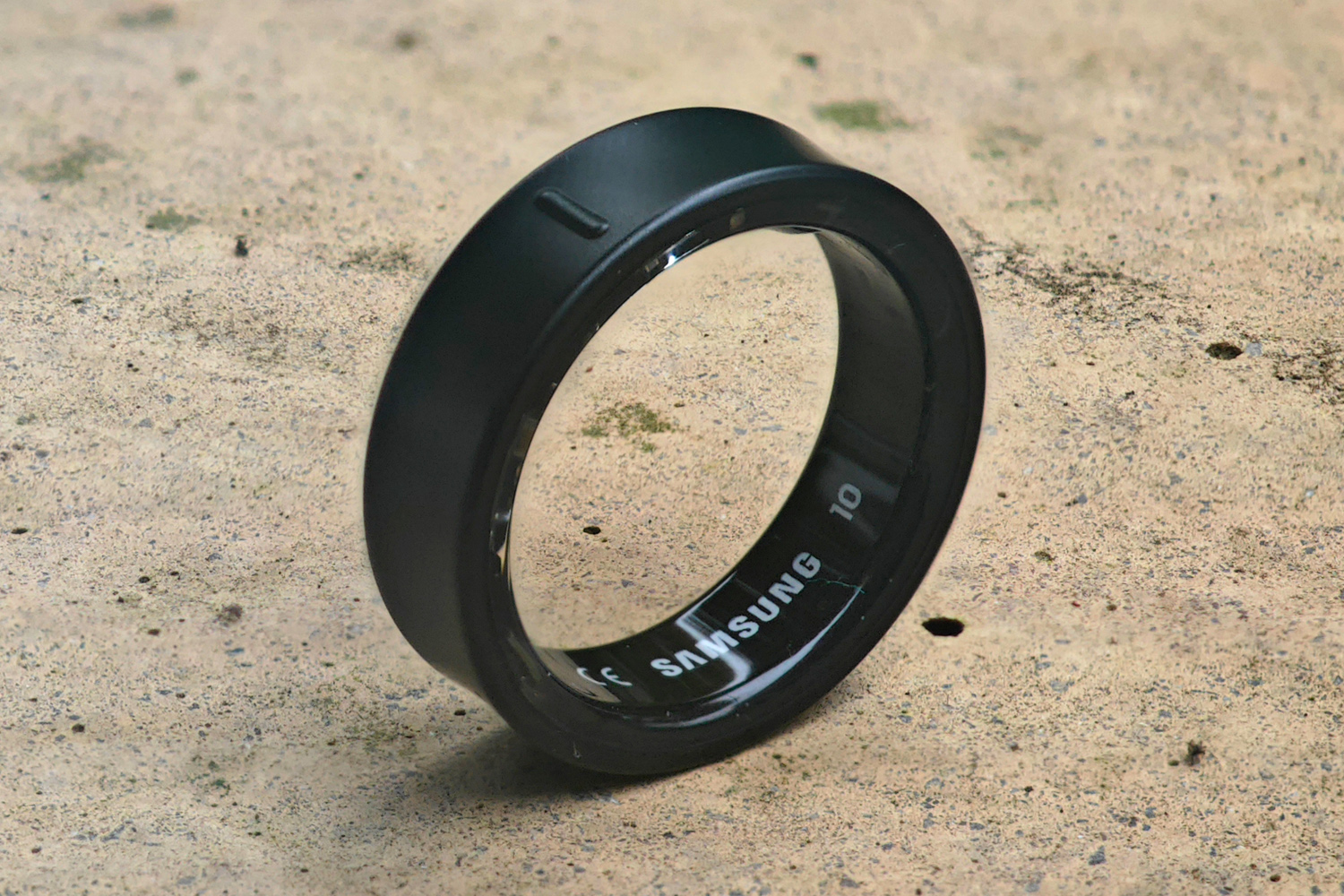
The Samsung Galaxy Ring gets impressively close to a regular piece of jewellery, being just 2.6mm thick despite being stuffed with sensors. That’s true of all of the nine different sizes – US ring size 5 to size 13 – currently available. At the time of writing Samsung was reportedly planning to add US size 14 and 15 to the mix, but they have yet to materialise. Still, Samsung already offers more choice than many smart ring makers, which will help guarantee a great fit – which is crucial for accurate health tracking. A sizing kit will set you back $10/£10, but that price gets taken off the cost of the ring.
My size 10 review unit was chunkier than my wedding band, but not so much that it was uncomfortable to wear on my other hand. If you already wear jewellery you’ll quickly adapt to its size, while it took a little longer for me to get used to having something on my (usually bare) right hand.
Ultrahuman’s Ring Air remains the lightest smart ring, as only the smallest of the Galaxy Ring’s size options tips the scales less. My size 10 model was closer to 3g, which was enough I never forgot I was wearing it, but not so much it was ever uncomfortable. IP68 and 10ATM water resistance means it can be worn in the pool as well as the shower, so you really only ever need to take it off to charge.
There are three colours to pick from: black, silver and gold, with the former having a matte finish and the latter two a polished one. All three are milled from titanium, with a concave shape that makes it look even slimmer once on your finger. Having seen all three in person, and worn the black version for this review, I’m convinced the polished metal versions are the ones to go for. The black titanium looks too much like plastic, which isn’t what you want from a gadget that will be on show 24/7.
The transparent charging case reminded me of the Nothing Ear wireless earphones. It’s a little bit smaller, but has a similar flip-top lid, built-in battery for convenient top-ups, and a white-on-clear plastic colour scheme. It’s small enough to pop in a pocket, though aside from one week-long work trip it spent pretty much the entire testing period on my night stand. I loved having the option to charge on the go, though – other smart rings just come with USB charging stations.
Health & fitness: have a heart
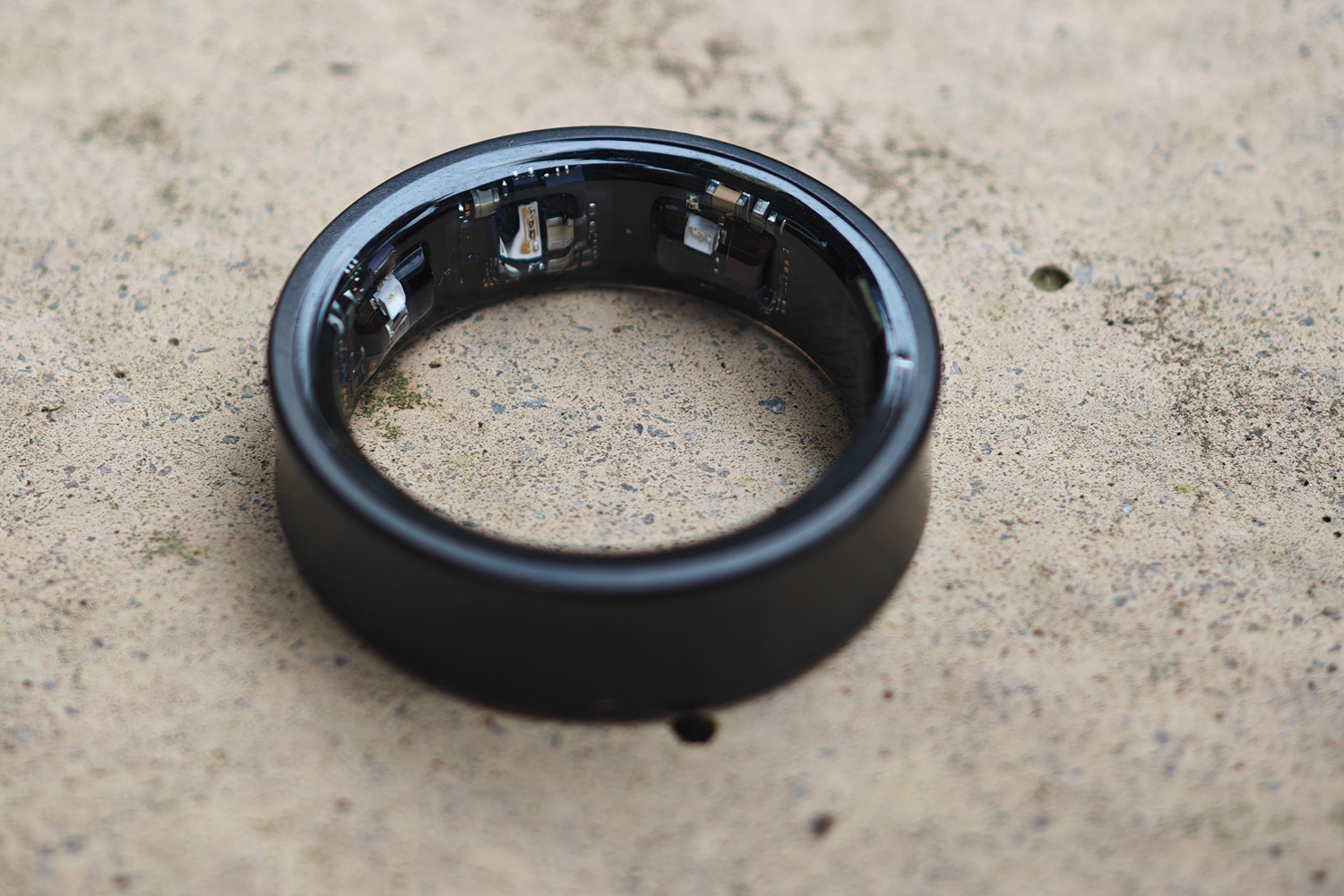

Fair play to Samsung’s engineering team: there wasn’t much room to work with, but they still found space inside the Samsung Galaxy Ring for an accelerometer, skin temperature sensor, and PPG heart rate tracker, on top of the battery and Bluetooth LE kit needed to send all the gathered data to your phone.
That data includes step count, sleep (including blood oxygen levels) and continuous heart rate tracking. From that it can calculate stress levels and measure menstrual cycles. Step tracking was largely in line with the smartwatch I usually wear, with a few hundred steps being a respectable margin of error.
It’ll also auto-record walking and running workouts, tracking cadence, pace, speed, heart rate zones and calories burned. Even occasional athletes will miss the more in-depth insights a fitness watch can record, though, and there’s no GPS for route tracking. You’ll also need to reach for your phone to track a cycle, swim, or other activity.
The Samsung Health presents your data in an easy-to-digest format, and is particularly good at boiling down your sleep metrics. It has the typical graph that highlights different sleep stages, sure, but I found it far more useful to know my body’s natural sleep schedule has more in common with a cautious deer than a well-rested lion; less late-night screen time and only getting in bed to sleep were two suggested ways to improve.
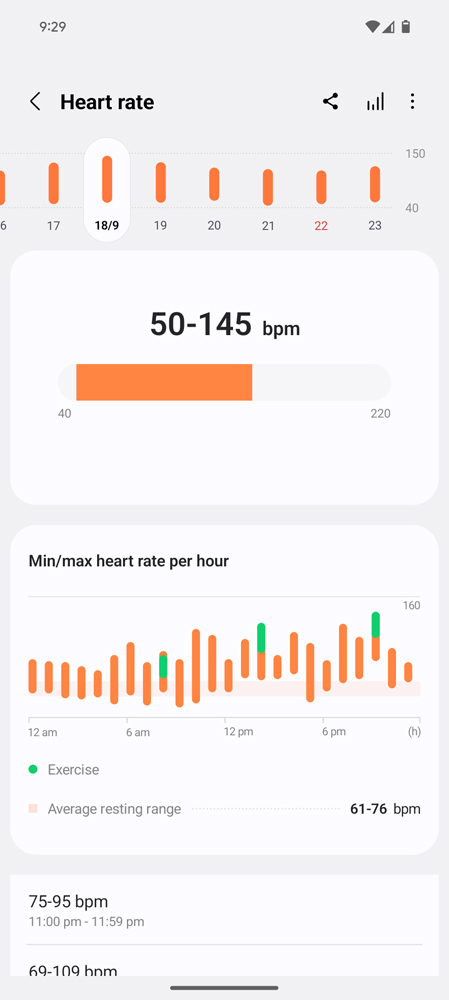
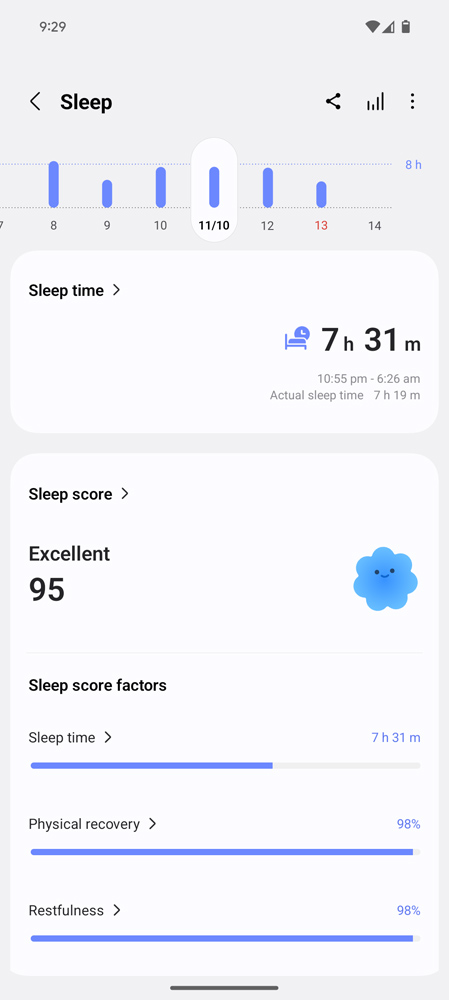
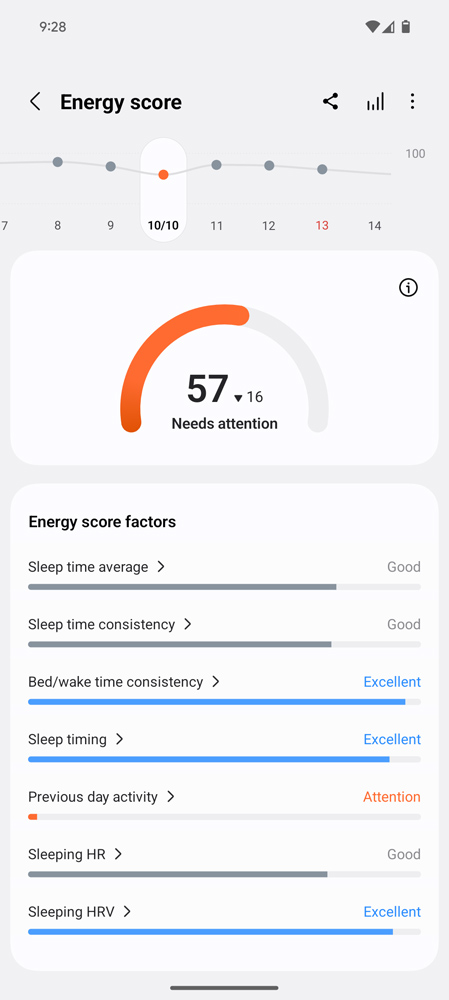
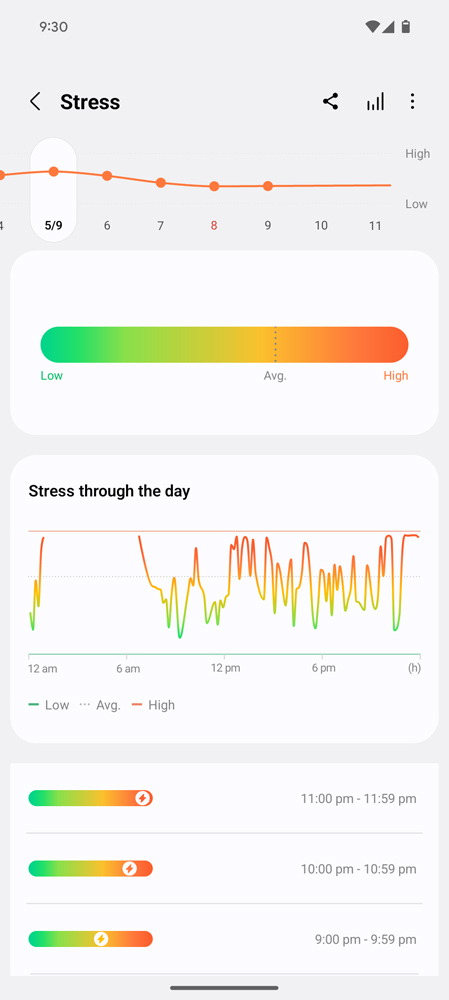
Combined with the new Energy Core rating, which measures how much you moved the previous day (through exercise or indirectly), it’s a useful way to judge whether to push harder on your next workout, or dial things back to give yourself time to recover properly. You really need to also wear a Galaxy Watch to get the most useful insights if you regularly do structured workouts other than running, as the Ring has no way to track them.
A big way Samsung justifies the Galaxy Ring’s price is by not charging any subscription fees for its data insights. A lot of rival smart rings demand a monthly payment to make the most of their hardware, and skipping it makes them into far more basic step and sleep trackers. I found it largely tracked with what I’d done the previous day, showing the biggest dips after exercise or particularly late nights.
Other features: thin on the ground
Even with its big health focus, I was a little surprised Samsung didn’t try to add a bit more functionality to the Galaxy Ring. There’s no support for contactless payments, for example (though few rivals have this) and no vibration motor for alarms or alerts (also a niche within a niche among smartwatch alternatives).
It does support gestures, where pinching your thumb and ring finger together will stop the alarm on your paired smartphone, or take a photo using its camera. There’s no way to change the gesture to answer an incoming call, or control music playback. The feature is MIA if you use a phone not made by Samsung, too.
I’ve also got to point out that iOS phone owners are completely out of luck, as right now the Galaxy Ring only pairs with Android devices.
Battery life: week-long warrior
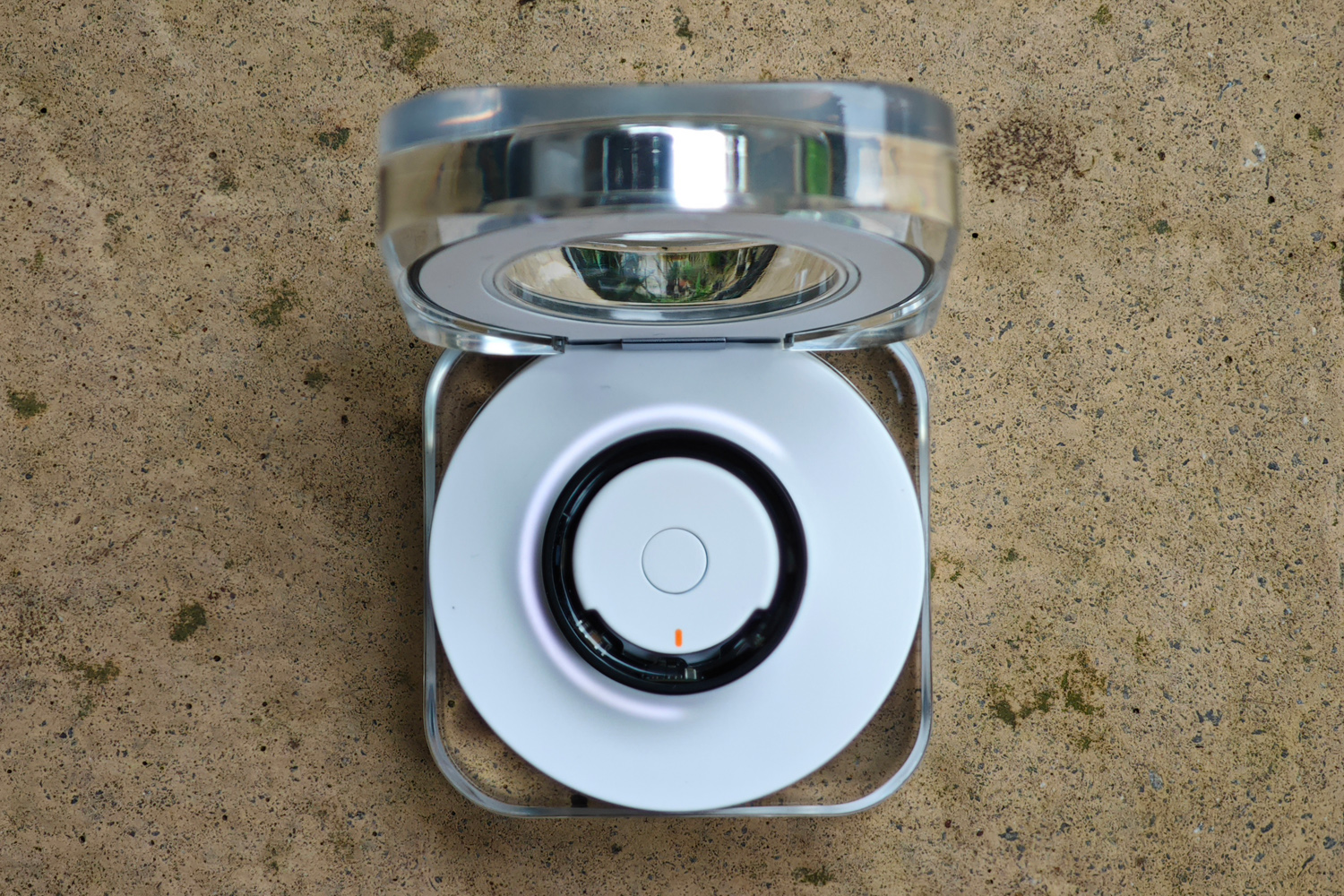

Officially, the Galaxy Ring will last up to seven days from a single charge – but a quick check of the small print shows this only refers to the two largest sizes. Every other version promises six days of use, which is in line with what I saw during testing. That puts lifespan on par with most of the smart ring competition, though you can extend that by a considerable 30% if you also wear a Galaxy Watch on your wrist.
The two recognise each other and adjust their health tracking intervals automatically. The ring takes fewer readings, but the companion app combines both devices to smooth out the erroneous heart rate spikes some solo wearables can show. I didn’t notice a dramatic difference in accuracy, but definitely got an extra day or two out of the Ring before it needed refuelling.
An 80 minute trip to the transparent charging case was enough to top it up fully. The case has enough power reserves itself to go almost 100 days before you need to find a plug socket, or if you have a Qi pad handy it also has wireless charging support. I really like how the case lights up to show the Ring’s remaining battery, ticking up the tiny white LEDs as it recharges. The ring can only fit inside the case one way, so I never worries about it not charging properly.
Samsung Galaxy Ring verdict
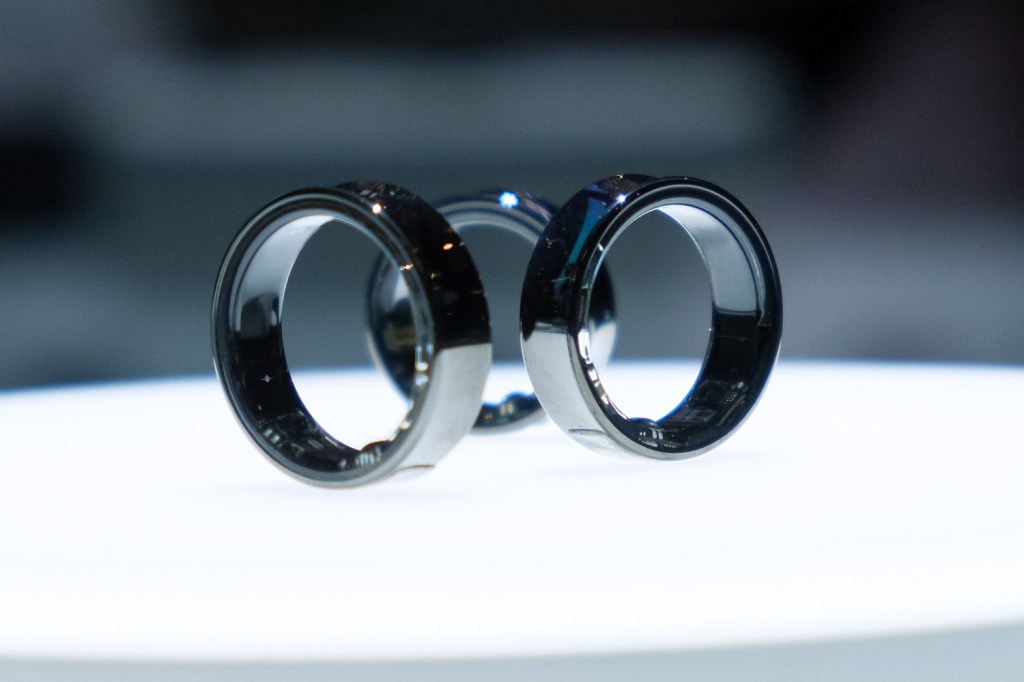
The Galaxy Ring doesn’t feel like a first attempt. Samsung has delivered a well-thought out wearable with all the health tracking smarts of startup rivals – only in a slimmer shell. That it doesn’t charge a subscription fee for its health insights or sleep tracking is a big win, and battery life is also up to par, even before you factor in the boost that comes with wearing a Galaxy Watch at the same time.
However, it doesn’t really add anything for those that already wear a smartwatch 24/7, and it misses out on a few features if you don’t also own a Samsung phone. iPhone owners have no choice but to shop elsewhere, too. That makes it an expensive companion for a Galaxy Watch you take off every night, rather than a true smartwatch alternative.
I can still see the appeal for early adopters who care more about wellbeing than widgets and watchfaces, and it’s a tantalising test of the water for mainstream smart rings in general. Sales will surely dictate whether it’ll be when or if other big-name brands get in on the action.
Stuff Says…
Not the first smart ring, but this debut effort brings a wearable niche to a much wider audience. The Samsung Galaxy Ring looks the part and doesn’t skimp on wellness tracking.
Pros
As thin and light as smart rings get
Samsung Health app is feature-rich and doesn’t need a subscription
Consistent week-long battery life
Cons
Limited feature set doesn’t quite justify high price
Android-only, and works best with other Samsung hardware
Titanium Black version doesn’t look especially high-end
Samsung Galaxy Ring technical specifications
| Materials | Titanium (black, silver, gold) |
| Sensors | Accelerometer, skin temperature, PPG |
| Connectivity | Bluetooth 5.4 LE |
| Battery | 18-23.5mAh (Size 5-13) |
| Dimensions | 7mm wide, 2.6mm thick 2.3-3.0g |

